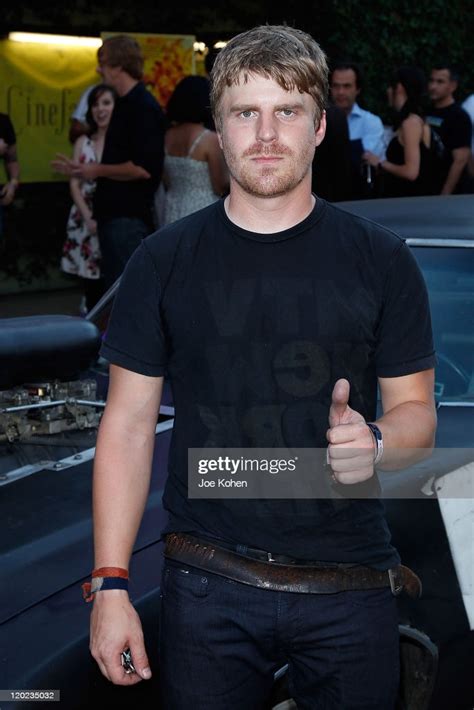A Quote by Salman Rushdie
You've got a generation of young men - almost all are young men - in situations of great economic hardship, where they don't really have work. The chances of them making a decent life for themselves, of making a family, living in a kind of decent, happy way, are very, very remote. It's very hard for them to ever even have that as a dream, so when people are that deprived of the ordinary hope of human beings, it creates anger. And that anger can be channeled by unscrupulous persons, whether secular or religious leaders, and there's been a lot of that.
Quote Topics
Almost
Almost All
Anger
Been
Beings
Chances
Creates
Decent
Decent Life
Deprived
Dream
Economic
Even
Ever
Family
Generation
Got
Great
Happy
Hard
Hardship
Hope
Human
Human Being
Human Beings
Kind
Leaders
Life
Living
Lot
Making
Men
Ordinary
People
Persons
Really
Religious
Religious Leaders
Remote
Secular
Situations
Them
Themselves
Very
Way
Whether
Work
Young
Young Men
Related Quotes
Certainly, poverty and economic decline have a lot to do with the so-called rage of Islam. You've got all these young men in countries which are economically in bad shape. The idea that they might be able to make a good living and get married and have a family, a decent life, seems very remote to a lot of people in a lot of the world.
Even though the money is great and the fame is great, you still have a lot of disenfranchised young men that are participating in the NFL that are not very happy. A lot of them are very bitter. A lot them are very angry. So many of them have had no fathers and no home life, and basically, no education.
Hope. People want hope. We crave hope. We long for hope. Hope has been present since the very beginning. And almost in the worst situations of human history, you often find the greatest amount of hope. The very nature of the situation, the way stepped-on people created within them even more hope than when things were going fine. Hope has always been around.
So Socrates was a kind of gadfly. He was a sort of philosophical urban gorilla hanging around in the middle of Athens, asking these peculiar questions of everybody - important people, young men, slaves - questions that had to do with ultimately what's the life that's worth living. And Plato was one of the young men who hung around him, a very aristocratic young man, came from a very old, important family.
Terrorists are not bad; they are limited by circumstances. They are human beings. I am very, very, very sad when they explode themselves and kill 40 to 60 persons. It's terrible. But also, I am sad for them, a young person who lost his whole life. It's terrible. They are limited by religion, by politics, by economical interests.
I'm incredibly proud to have been nominated in the past and it really means a lot to me because I do work very hard when I'm making a film and I do really do absolutely give my all. To get that kind of pat on the back, it's really amazing and also never something that I anticipated would possibly happen to me, ever. So I am very, very proud to have been there before. And, you know, the nice thing about nominations is that, same as awards, no one can actually take them away from you and I'm proud of that.
I've never had a very closely connected family. My parents split up when I was young and I was living with my mom for a little while, then I was kind of just on my own really young. It wasn't some kind of global tragedy, it was just never really a very close-knit family. So there was support in the sense that they didn't stand in my way.
When people, particularly young people and especially young men, can't imagine themselves as heroes in narratives that they construct for themselves, they look to be heroes in some other way. So young men in America of, let's say, Muslim background, only a tiny, tiny minority - so small as to be almost zero - are likely to ever commit terrorist acts.
I can't really recreate or reconstruct exactly how or from where any of my characters originate, young or old, though chances are at least decent that once I name and begin to know them, young or old, I can then attempt to reveal each as psychologically complex and nuanced, and to speak through them, as William Matthews says, "What it feels like to be human."
Wanted or unwanted, I believe that human life, even at its earliest stages, has certain rights which must be recognized – the right to be born, the right to love, the right to grow old... When history looks back to this era it should recognize this generation as one which cared about human beings enough to halt the practice of war, to provide a decent living for every family, and to fulfill its responsibility to its children from the very moment of conception.
And look, we have young people in this country who are thirty years old living with their parents. We have young people in this country who don't have jobs, who graduate from college and are fed the lie of meritocracy. "You get a degree, you get a job." That's not happening. We have young people who have become the Zero Generation: zero hope, zero employment, zero possibilities. Do we really believe that this young generation is going to stand by and not take note of an economic system that - however it calls itself - has completely betrayed them?
Weapons are the tools of violence;all decent men detest them.Weapons are the tools of fear;a decent man will avoid themexcept in the direst necessityand, if compelled, will use themonly with the utmost restraint.Peace is his highest value.If the peace has been shattered,how can he be content?His enemies are not demons,but human beings like himself.He doesn't wish them personal harm.Nor does he rejoice in victory.How could he rejoice in victoryand delight in the slaughter of men?He enters a battle gravely,with sorrow and with great compassion,as if he were attending a funeral






































